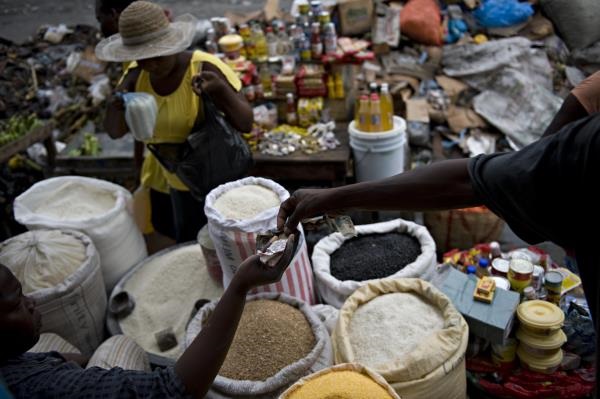
10 December 2019, Rome - The Food and Agriculture Organization of the United Nations (FAO) and INCATEMA today agreed to support Small Island Developing States (SIDS) in the Caribbean to scale up their use of renewable energy sources in agriculture and food systems.
The new partnership will strengthen small island nations' efforts to grow more food, avoid food loss and waste, use already scarce natural resources more sustainably, and be better equipped to withstand the impacts of climate change to which they are particularly prone.
Through this new partnership, the UN food agency and private sector partner will ascertain how renewable energy is currently used and how it could be scaled up in food production, processing and preservation as well as work towards creating a more enabling policy environment for the use of new energy efficient technologies in the region.
Caribbean SIDS are highly dependent on fossil fuel for their energy needs. A switch to renewable energy sources is paramount for building a more sustainable future, especially for small island communities, which have been grappling with complex environmental and development challenges.
Particularly in recent times, extreme weather events have repeatedly damaged SIDS' critical infrastructure required to transport food to and on the islands, impacting on communities' food security, nutrition and livelihoods.
"New energy efficient technologies are key to increasing the supply of affordable, safe and nutritious foods, while reducing food losses and waste and protecting the environment. We welcome this opportunity to join forces with INCATEMA to boost small island nations' Zero Hunger and climate actions," said Daniel Gustafson, FAO Deputy Director-General for Programmes, at the signing of the agreement.
Jose Maria Arribas, INCATEMA's General Director, and Joaquin Quiñonero, Director of Development signed the agreement on behalf of INCATEMA.
For his part Arribas said: "This collaboration represents a great opportunity for Incatema to contribute - through FAO - to the achievement of the Sustainable Development Goals (SDGs), and more specifically to the food security and the development of more efficient inclusive food systems, particularly for small food producers in developing countries".
The partnership will support concrete actions in line with FAO and partners' Global Action Programme on Food Security and Nutrition in SIDS (GAP), which aims to accelerate action on food security and nutrition to support sustainable development in small island states.
In particular, FAO and INCATEMA will pilot the use of solar drying technologies in food processing with groups of food business operators in Barbados, Dominica, Grenada and Saint Lucia, and solar irrigation in the Dominican Republic and Haiti. They will also identify the economic and social benefits and constraints of using the technologies at local and national levels. The data and evidence generated will be used to inform policy development and guide future investments in upscaling climate resilient food production and processing practices in the region.
Best practices and recommendations stemming from the analysis and pilot projects will be shared across Caribbean SIDS. Based on this, at least three island nations are expected to commit to scaling up the use of renewable energy in their food production and processing operations.
The way in which food is produced, transformed, delivered and consumed will be key in meeting a significant number of Sustainable Development Goals.
Greater scope of new partnership
FAO and INCATEMA aim to strengthen the following areas through cooperation: